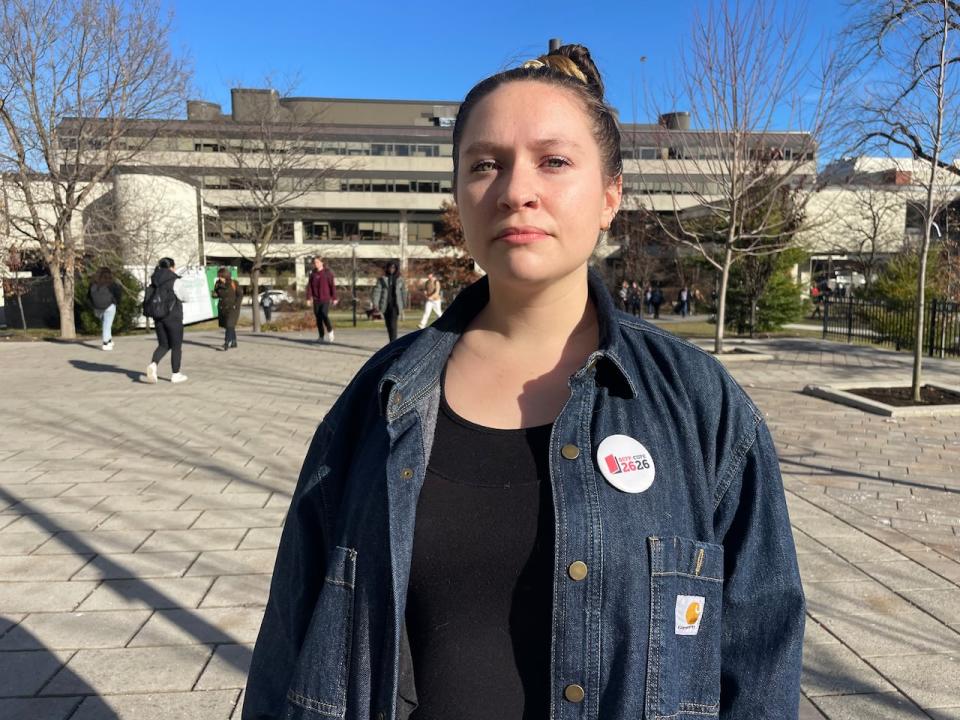Switch to cloud-based HR system creates storm of problems for U of O

Working students and professors are dealing with what they call an "institutional failure" by the University of Ottawa after it switched to a new finance and HR system earlier this year — a move they said has caused an onslaught of problems, including employees being underpaid, overpaid or not being paid at all.
Students and teachers told CBC the issues are campus-wide, affecting every department at the school since it launched Workday, a cloud-based system for payroll, scheduling and other human resource needs.
The system is developed by Workday Inc., a NASDAQ-traded company with revenues of more than $6.2 billion US last year alone.
Students and professors said the problems with Workday have caused overwhelming financial difficulties for many, particularly for temporary, part-time and contract workers — with no solutions in sight.
"It doesn't seem to be getting better and we are really at a loss as to what to do," said Audrey Giles, a professor in the faculty of health sciences.
University administration and Workday representatives declined CBC's requests for interviews, but spokespeople for both said there was nothing wrong with the system itself.
"The experience has been seamless for the great majority of user accounts, and the new software is functioning as modelled," said university spokesperson Jesse Robichaud. "However, we remain in the expected transition phase, with user input errors causing the bulk of the reported delays."

Workday Inc., the company behind the financial and human resources software, was founded in 2005 and generated revenue of more than $6.2 billion last year. (Google Maps)
An unidentified Workday spokesperson said "payment issues referenced are non-technical in nature and unrelated to the Workday system."
University employees argue staff were ill prepared for the change and are calling on administration to fix the problems as soon as possible.
Ongoing pay problems
Prior to Workday, the university had several HR systems in place that varied across departments. According to an article posted on the school's website last year, the switch to a new system was an effort "to maximize efficiency."
It promised an "easier" HR program for employees — one already adopted by several other post-secondary institutions across Canada and the U.S. Workday is also used by the CBC.
But Giles said Workday has been anything but easy since its launch in May.

Audrey Giles teaches at the University of Ottawa in the faculty of health sciences. She says a number of her research accounts have disappeared since the launch of Workday. (Nicole Williams/CBC)
"All of a sudden it was impossible to see our research accounts. It was taking months to get any sort of contracts filled for people to be employed and then also for dollars to flow," she said.
Catherine Larocque, president of CUPE 2626 — which represents student workers including teaching assistants, research assistants, residence workers and lifeguards — said the union has received dozens of complaints about pay problems since the start of the fall semester.
There were delays in issuing contracts. Some students weren't getting paid. Some were underpaid while others were getting paid too much and then being asked to repay upwards of $5,000, she said.
Impacts on livelihood and mental health
The issues have led to issues paying bills, paying rent and affording groceries, said Larocque, adding there's been a significant increase in students needing to access the union's emergency fund.
"This has caused significant levels of mental distress," she said. "Not being able to pay your bills, not knowing when you're going to get paid, especially when you're paycheque to paycheque, you can't function. You can't focus on your studies."

Catherine Larocque is president of CUPE local 2626, which represents student workers at the university. Her office has heard complaints from members of every faculty at the university. (Nicole Williams/CBC)
Luc Angers, vice-president of the Association of Part-Time Professors at the university, said his office has also been "inundated" with calls from members.
He said hundreds of part-time professors have faced similar issues: not getting paid or only receiving partial pay for their work.
Another major challenge, Angers said, is that technical difficulties with Workday meant professors weren't able to apply for some contracts.
"It's a bad change when you hinder the opportunity for people to get to live and to cut on their finances, to cut on their quality of work," he said.
U of O working out issues, says spokesperson
Unions and a number of faculty deans said they have expressed their concerns with university administration for months.
"It has been escalated in every way possible, which is why I think people are feeling a real sense of distress right now," said Giles, who has stopped recruiting grad students or applying for grants until the issues are resolved.
In a statement to CBC, Robichaud said the implementation of Workday was "an important step" in modernizing its administrative services.
He said the university has been working with students and managers to explain the new system since the launch. That includes training "on the importance of recording and approving hours on time."
"We recognize the impacts of delays and other problems, and are working to urgently address them as they are identified," said Robichaud.
Giles said training has been "inadequate" and resolutions aren't happening fast enough.
"The rate at which they correct things is still slower than the rate at which we find problems with it," she said. "It feels a lot like institutional failure."


